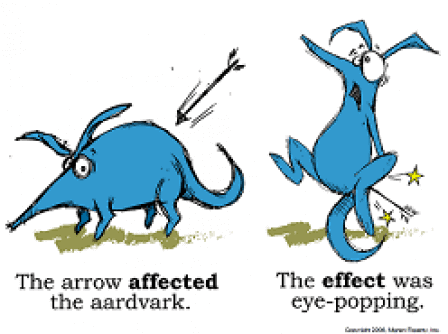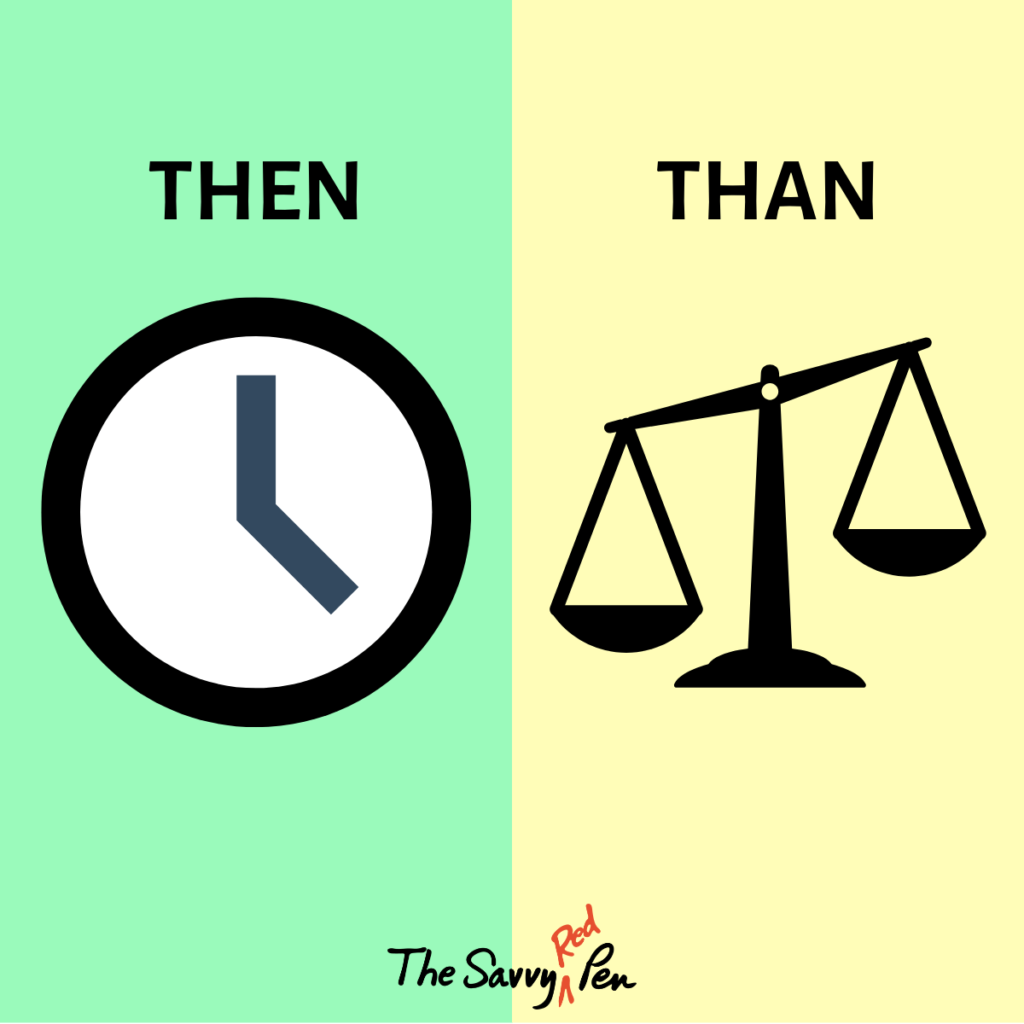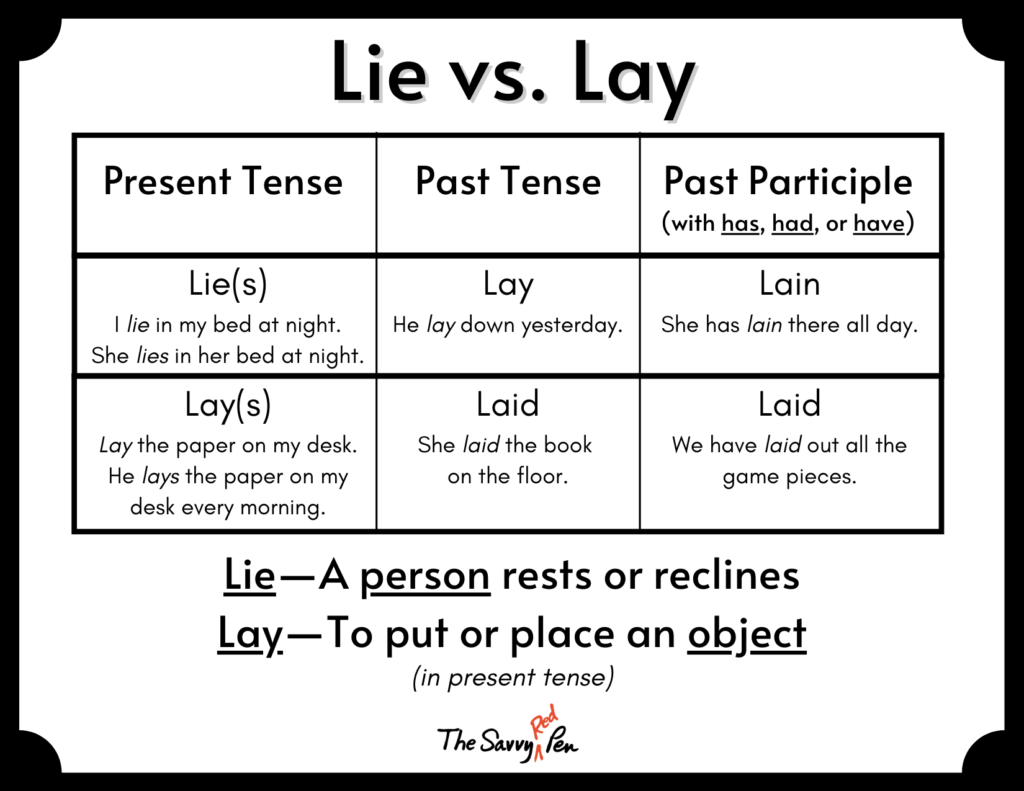“Why is the English language so confusing?” my students and friends ask. Just recently, I was attending a small networking event of savvy businesspeople, and our meeting turned into a usage lesson (which I was happy to conduct). When they expressed their frustration with homophones “their, there, and they’re” and “to, too, and two,” I graphically showed them the difference with cute, simple drawings and ways to remember them.
I thought we’d move on to chat about our business goals and wins, but the grammar comments kept coming: “I never know when to use ‘affect’ and ‘effect,’ and the difference between ‘lie’ and ‘lay’ confuses me to no end. And I always mix up ‘then’ and ‘than,’ and spell check certainly doesn’t help. How do you know when to use what?”
The fact is, many writers struggle to keep these words straight. So, here are my tips for sorting out these commonly confused words. My friends tell me the lesson was memorable.
Affect/Effect

On a technical level, differentiating between “affect” and “effect” is a simple as knowing that “affect” is a verb and “effect” is a noun. To put it another way, we use affect when something is altered or influenced by another thing. A change is occurring. Effect, on the other hand, is a noun. Typically, it is used to show the end result of an action—the outcome that occurs after a cause.
Simple, right? Well, it only seems to stick in our craw when we put the words into sentences.
Affect=Verb
Global warming is affecting the increased temperatures in the Northwest.
The news of her illness affected me so seriously, I cried for days.
Memory trick: Affect represents an alteration, and they both start with “a.”
Bonus memory trick: Affect shows action; they both start with “a.”
Effect=Noun
The effect of global warming in the Northwest is outrageously high temperatures.
The effect of her illness on me is continuous sadness.
Memory trick: Effect represents the end, and they both start with “e.”
Here’s a sentence using both words:
The most common side effect of the drug affected his heart.
Then/Than

The difference between these words is a matter of time and comparison. Then shows something happening in time. First this happened, then that happened.
First, I did my homework, then I watched TV.
Than, on the other hand, shows comparison. This is better than that—smaller than, smoother than, and further than.
The novel is much better than the movie.
So far, so good? The next is a kicker.
Lie/Lay

The differences here are trickier. The words are not only spelled differently, but their usage is also different, and the choice depends on verb tense. That’s right, when we talk about verb tense, we need to remember present and past at the very least.
Lie is a verb that means “to be in or to assume a horizontal position.”
We also know to lie can mean “to make an untrue statement,” but we’ll focus on the first definition for now.
Present tense-doing it right now:
I lie in bed for hours when I have a cold.
Past tense-doing it in the past:
I lay down for a two-hour nap yesterday.
When my Pilates instructor commands us to lay on the reformer, my ears hurt, and I have to use my willpower and respect not to correct her. The voice in my head says, “Lie down, lie down.”
The other use of lay is a verb meaning “to put or set (something else) down.”
This form of “lay” takes an object.
Present Tense:
Lay the book on the table.
Past Tense:
She laid the blanket on the floor when I asked.
Here’s where it can get tricky. The past tense of lie is lay, but not because there is any overlap between the two verbs. So, when you say, “I lay down for a nap,” you’re actually using the verb lie, not lay, despite the way it sounds. English can be so confusing!
Participle Woes
To confuse the issue even more, verb tenses include more than present and past tense. Try this term on for size: participle. What? Are we speaking a foreign language or what?
We use participles with our infamous helping verbs like had and have.
Present participle:
Lay: I was laying the blanket on the floor.
Lie: You’ve been lying down all day.
Past participle:
Lay: She had laid the blanket down before she left.
Lie: I had lain there for some time before getting up.
Oh my, does your head hurt? There’s such a word as lain? Maybe this chart will help.

I don’t know if my business buddies remembered all of this, but I tried. Commonly confused words create mental tailspins. Aspirin anyone?
Want more writing tips like these? Subscribe to The Savvy Red Pen Blog! We also offer a full suite of editorial services. Contact us today to discover how we can help you!
Related Articles
Untangling Homophones
Common Confusing Words: Suppose vs. Supposed
The 10 Best Grammar & Writing Resources for Your Writer’s Toolbox

